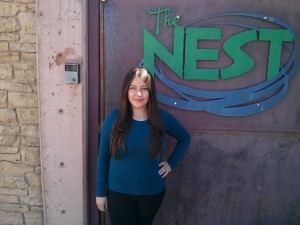It is no secret the work done within the walls of The Nest domestic violence shelter is difficult, but perhaps the most common misunderstanding is any outsider’s tendency to pity the women and children residing there.
Ask any Help End Abuse for Life (HEAL) staff member to describe what a 90-day stay may look like for a budding survivor and you will be offered stories of hope, rebuilding, independence and strength. Make no mistake: the life of a survivor is difficult, but not one to pity. As survivors would say, the real misfortune is for those who have not yet come to The Nest.
Precious few of The Nest’s survivors have written a story quite as inspiring as that of Karen and her children, who stayed in Lincoln County’s first and only battered women’s shelter nearly one year ago. Karen was invited to share her story with the community and bravely obliged.
Karen had been born into abuse, though she never witnessed it. Her mother soon remarried a respectful husband and father. Karen ended up in a darker situation. “I started doing my own thing, thinking I knew what I was doing,” she said. “You don’t believe it. You see other women and ask, ‘Why don’t they leave? But, where will you go? How will you do it?”
“I was literally lost,” she said, reflecting on her life before seeking shelter. “I didn’t know where or how to start. My children were quiet, they didn’t go out, they cried a lot. They were intimidated, even when we first got to the shelter.”
Karen knew she had to get out of the violent relationship for the sake of her children. “You start gaining faith, believe you don’t deserve it. It gives you the strength to leave. You don’t want to see your family go through it. You want to change.”
After taking the important stand and getting out of her situation, she saw a quick turnaround, both for herself and her family. She began by taking baby steps. “Now, my kids are outgoing, they socialize, they’re happy. They can laugh and be themselves. The best part is you feel free. You make your own decisions. You can make mistakes and fail, but you stand up and learn and continue and grow stronger. The results come to light. You see it was worth it, even every tear you cried was worth it. It turns from fear and depression to believing and strength. You say, ‘I can do it.’ It’s amazing. No one else can give you that.”
Though the services provided by staff at The Nest helped Karen, she stated victims must truly want to become survivors. “Staff pointed me right, but it’s about doing it on your own. The Nest provides a phone number, a name and someone to talk to 24/7 to get better. Staff keeps encouraging and supporting you, and they provide a place to live, food, supplies, even offer to help you get closer to your faith, but you have to do it on your own.”
Finally, she shared a message for victims’ thoughts about leaving. “The abusers try to tell you that you can’t or that you’re not good enough. But it’s not rocket science. You just have to learn to live your life, learn to work, to make decisions and become aware of situations. Anyone can do it. You just need to want to do it, and then make a move.”
Karen’s story is inspiring because it shows that even those in the darkest times can turn their lives into powerful stories of strength, bravery and hope. Stories like hers are being written day in and day out by the women and children entering and leaving The Nest, taking their first steps into the new and positive lives they create for themselves. As Karen would tell you, the life of a survivor is not the one to pity, but one worth living.
Pictured is Karen, a survivor of domestic violence and past resident of The Nest.


